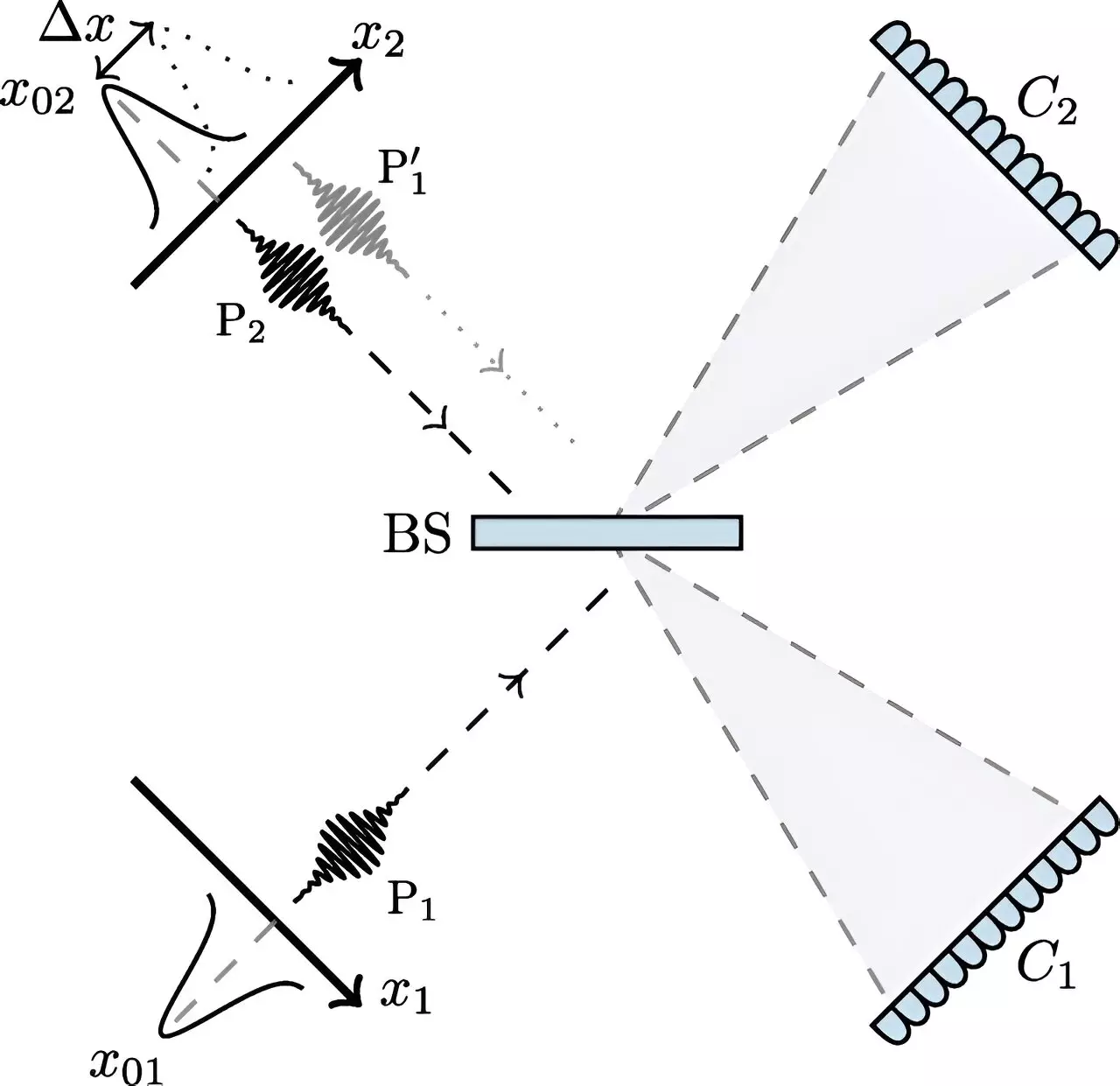In a groundbreaking development, researchers at the University of Portsmouth have introduced a cutting-edge quantum sensing scheme that promises to revolutionize superresolution imaging techniques. This innovative approach aims to achieve the utmost precision in measuring the transverse displacement between two interfering photons, overcoming the limitations imposed by traditional imaging methods. By harnessing the power of quantum technology, this new sensing scheme opens up unprecedented possibilities for enhancing the localization and tracking of biological samples at the nanoscale.
Historically, the field of nanoscopy has faced constraints imposed by standard imaging techniques, such as the diffraction limit of cameras and highly magnifying objectives. These limitations have hindered researchers’ ability to achieve ultra-high precision in their studies of biological samples. However, the quantum sensing scheme developed by the University of Portsmouth researchers offers a solution to these challenges. By leveraging an interferometric technique, this innovative approach enables exquisite spatial precision, irrespective of the overlap between displaced photonic wave packets.
A Leap Forward in Spatial Sensitivity
One of the key highlights of this new quantum sensing scheme is its remarkable spatial sensitivity, which outperforms existing methods by a significant margin. Unlike traditional techniques that struggle with photons differing in nonspatial degrees of freedom, this quantum-enhanced approach maintains its effectiveness even under such conditions. This represents a major advancement in the field of superresolution imaging, paving the way for new possibilities in the study of biological samples at the nanoscale.
The unveiling of this quantum sensing scheme underscores the transformative power of quantum technology in pushing the boundaries of scientific exploration. By harnessing the principles of quantum mechanics, researchers are now able to achieve levels of precision previously thought unattainable. This breakthrough not only holds immense promise for the field of nanoscopy but also opens up new avenues for innovation in various other fields, including quantum computing and communication.
The quantum sensing scheme developed by the University of Portsmouth researchers represents a significant step forward in the realm of nanoscale precision. By overcoming the limitations of traditional imaging methods and harnessing the power of quantum technology, this innovative approach has the potential to revolutionize superresolution imaging techniques. With its unparalleled spatial sensitivity and ability to maintain effectiveness under challenging conditions, this quantum-enhanced scheme heralds a new era of ultra-high precision in scientific research.



Leave a Reply